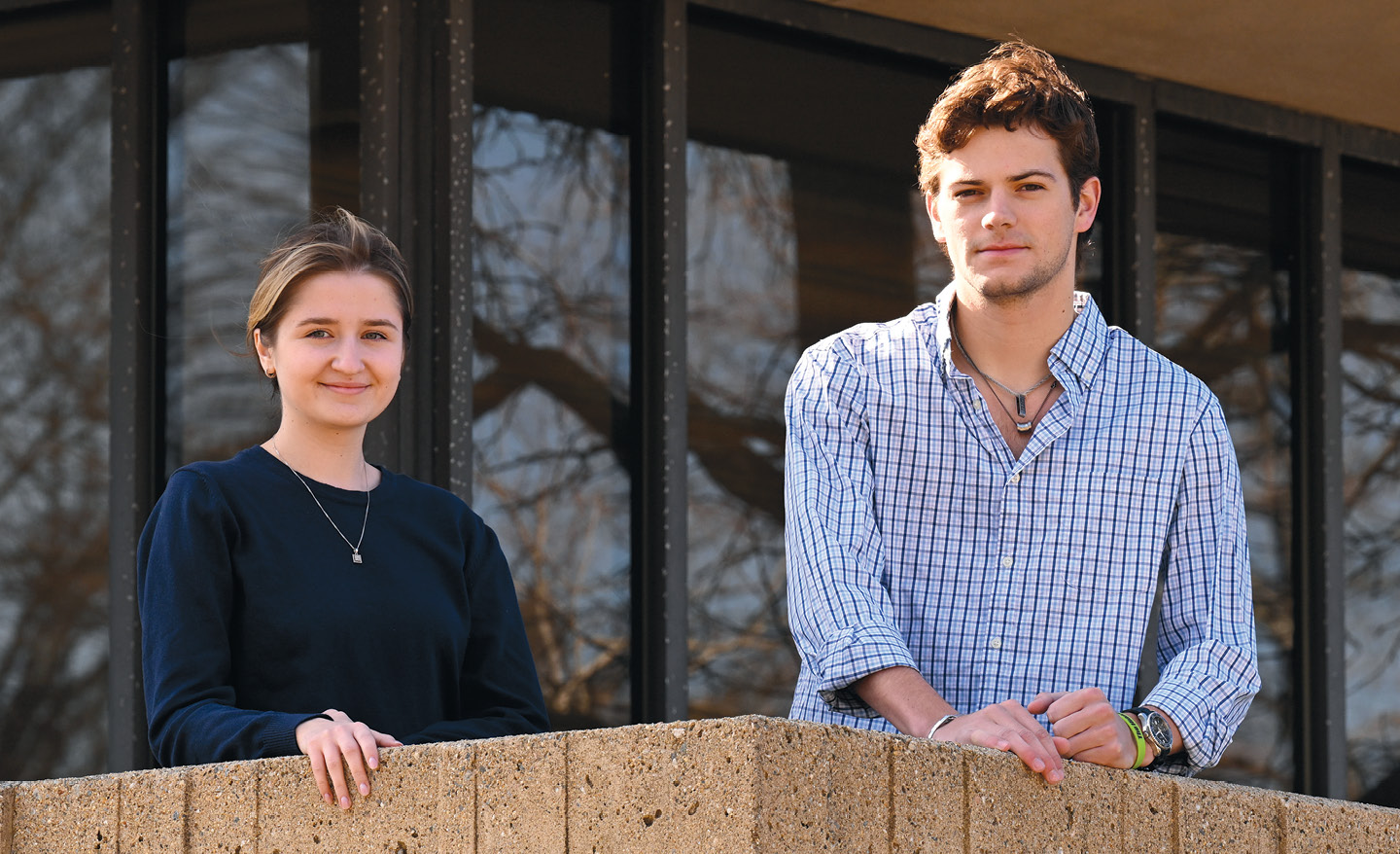Where Need Is Greatest
Two Conn students took separate trips abroad over winter break to help Ukrainian residents and refugees
Two Conn students took separate trips abroad over winter break to help Ukrainian residents and refugees.
Olha Vasyliv ’23 went home to Kyiv for the first time since before war broke out to visit her family. With advice from child psychologists and a grant from Conn’s Center for the Critical Study of Race and Ethnicity, she also supplied her alma mater, European Collegium, with art therapy tools to help students cope with the stress of war.
Meanwhile, Ethan Bankowski ’24 assisted the International Medical Relief organization as part of a crew of 14 doctors, nurses, physician assistants and one other non-medical volunteer to care for Ukrainian refugees in Poland.
Vasyliv, a sociology and French double major, was studying abroad in Paris last year and had a flight booked to Ukraine on Feb. 25, 2022. But then Russia invaded on Feb. 24. So, finally going home last month and seeing her family and her country has been healing for her, even if daily life looks different.
“I lived through a missile attack, and I was not panicking at the moment because everybody knew what to do. There is a procedure for where to go,” she said.
Vasyliv’s 9-year-old brother attends European Collegium and her mother is a principal there. When air raid sirens blare, sometimes for several hours a day, hundreds of students seek shelter in the school’s basement.
“They have to keep themselves occupied, so psychological support is very, very needed and I’m happy that I was able to give back,” she said.
Bankowski, a biochemistry, cellular and molecular biology major who intends to become a doctor, had been seeking an opportunity to gain more experience in the public health field.
“I’ve always been interested in international humanitarian health. The need in this crisis in particular with the Russian-Ukrainian war was most compelling.”
Nearly 10 million Ukrainian refugees have crossed the border to Poland since the invasion last year, and most of them lack access to medical care. Many left their medications behind or have long since run out.
“We would go to a new refugee shelter every day, set up a temporary clinic there, and just treat as many people as we could,” he said. “Some people had longstanding health problems and hadn’t had a chance to see a doctor. Some people just needed to talk to someone. There is a lot of anxiety and a lot of depression in these communities.”
Bankowski added, “I can’t imagine living the life of a doctor and not being involved with trips like this.”
